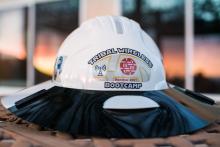
*The following story by Broadband Breakfast Reporter Jennifer Michel was originally published here.
From August 18-21, the Sault Ste. Marie Tribe of Chippewa Indians will host a four-day Tribal Broadband Bootcamp on the Tribe's Marquette campus in Michigan’s Upper Peninsula.
The Bootcamp aims to equip Tribal Nations with the skills to build, manage, and expand their own broadband networks. It will be the second held in the Great Lakes region, designed primarily for members of 36 federally recognized Tribes across Michigan, Wisconsin and Minnesota.
The first Tribal Broadband Bootcamp took place in California in 2021, organized by Matthew Rantanen and Christopher Mitchell, co-founders of the broadband advocacy group Waskawiwin, who hoped to build and encourage nontraditional broadband networks.

Seventeen bootcamps have occurred since 2021, each with an agenda adjusted to the experiences and interests of hosting Tribes. Overall, the training program has hosted more than 400 participants from more than 70 Tribal Nations across the United States and Canada.
The training program, led by Rantanen and Mitchell, will unite tribal technology staff, community leaders, and broadband advocates for hands-on instruction in network design, deployment and management.
According to Mitchell, the goal of the Bootcamp “is to connect people working in Indian Country on Internet access to build skills and share knowledge on how to make sure everyone is well connected.”
Participants will learn about fiber infrastructure layout, network management, and resource identification, as well as the implications of current federal policies, how Internet service providers can generate tribal revenue, and methods to expand tribal household connectivity.
The Tribal Broadband Bootcamp program emerged as billions of dollars in federal funding for tribal Internet connectivity was granted during the Biden Administration via the Tribal Broadband Connectivity Program, alongside funding for other federal, state, and local broadband initiatives.
Funding under TBCP targets connectivity gaps across Indian Country, as only around half of federally recognized tribal lands have access to Internet service that meets the federal government’s standards of 100 Megabits per second (Mbps) download and 20 Mbps upload speeds.
“For decades, Tribes have been overlooked, ignored, and defrauded by telecom companies seeking to extract wealth from their people and land,” the Tribal Broadband Bootcamp website states.
See our map and census of Tribally-owned networks here.







